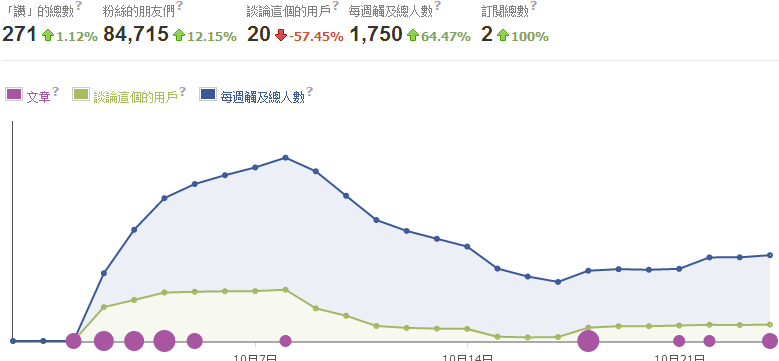Team:NTU-Taida/Human Practice/Doctor-Interview
From 2012.igem.org
(→Wei-Chih LIAO) |
|||
| Line 17: | Line 17: | ||
== Wei-Chih LIAO == | == Wei-Chih LIAO == | ||
| - | |||
<p style="text-indent: 2em;"> | <p style="text-indent: 2em;"> | ||
| - | + | http://med.ntuh.gov.tw/doctors/doc_profile.asp?section=gi&doctor=%B9%F9%B0%B6%B4%BC&employee= | |
</p> | </p> | ||
<p style="text-indent: 2em;"> | <p style="text-indent: 2em;"> | ||
| - | + | Gastroenterologist, Department of Internal Medicine, National Taiwan University Hospital | |
</p> | </p> | ||
<p style="text-indent: 2em;"> | <p style="text-indent: 2em;"> | ||
| - | + | From the viewpoint of a gastroenterologist, doctor Wei-Chih Liao deal with the safety issues of our project from two aspects. | |
| + | First is uncertainty of the survival advantage of introduced bacteria. “When this peptide delivery bacteria is introduced into guts, it may have influence on the normal flora of intestine”, Doctor Liao said, “There is possibility of failed colonization without any safety problem; however, there is still possibility of breaking the normal balance of intestinal bacteria.” Although we designed to utilize enterobacteria of normal flora as a vector of our peptide delivery system, we still can’t ensure absolute safety due to the complexity of intestinal environment. | ||
| + | Second, he concerned about the effects of synthetic GLP-1 on human body, “GLP-1 is a promising therapeutic candidate for weight controlling and diabetes. Other functions of GLP-1 have not been quietly understood, though.” In other words, our system might raise unwanted effects while synthetic GLP-1 regulates the energy balance of human body. Besides, whether this additional GLP-1 really regulates instead of disturbing the energy balance is another question. | ||
| + | “Human being is complex. A slight change may result in whole difference, like the butterfly effect.” said Dr. Liao. Just like other new therapy undergoing large clinical trials, Doctor Liao suggested strict assessment and clinical trial should be done, then we could have a clear insight into the safety of our project based on the statistics. | ||
</p> | </p> | ||
| - | |||
== 醫師名 == | == 醫師名 == | ||
Revision as of 16:25, 26 October 2012
Human Practice: Doctor Interview
Contents |
Tsu-Yao CHENG
http://med.ntuh.gov.tw/doctors/doc_profile.asp?section=gi&doctor=%BEG%AF%AA%C4%A3&employee=
Gastroenterologist, Department of Laboratory Medicine, National Taiwan University Hospital
“Maintenance of the target peptide functional concentration in the gut and the maintenance of sufficient colonies are the most big two questions that a clinical physician interested in the most”, said Dr. CHENG. After explaining to him about our neuropeptide delivering system and the safety system we designed, he commented, “That is really a good approach!”. Dr. CHENG also mentioned that we should consider the peptide bacterial advantages over the normal flora. To maintain the steady dosage of peptide each time the bacteria produced, We need to find a way to stabilize the bacterial colony number and the consistency over time. He noted that each antibiotic usage or even diarrhea can change the colony status. How to increase the bacterial surviving ability should be our main concern.
Wei-Chih LIAO
http://med.ntuh.gov.tw/doctors/doc_profile.asp?section=gi&doctor=%B9%F9%B0%B6%B4%BC&employee=
Gastroenterologist, Department of Internal Medicine, National Taiwan University Hospital
From the viewpoint of a gastroenterologist, doctor Wei-Chih Liao deal with the safety issues of our project from two aspects. First is uncertainty of the survival advantage of introduced bacteria. “When this peptide delivery bacteria is introduced into guts, it may have influence on the normal flora of intestine”, Doctor Liao said, “There is possibility of failed colonization without any safety problem; however, there is still possibility of breaking the normal balance of intestinal bacteria.” Although we designed to utilize enterobacteria of normal flora as a vector of our peptide delivery system, we still can’t ensure absolute safety due to the complexity of intestinal environment. Second, he concerned about the effects of synthetic GLP-1 on human body, “GLP-1 is a promising therapeutic candidate for weight controlling and diabetes. Other functions of GLP-1 have not been quietly understood, though.” In other words, our system might raise unwanted effects while synthetic GLP-1 regulates the energy balance of human body. Besides, whether this additional GLP-1 really regulates instead of disturbing the energy balance is another question. “Human being is complex. A slight change may result in whole difference, like the butterfly effect.” said Dr. Liao. Just like other new therapy undergoing large clinical trials, Doctor Liao suggested strict assessment and clinical trial should be done, then we could have a clear insight into the safety of our project based on the statistics.
醫師名
網址
職稱
說明
醫師名
網址
職稱
說明
醫師名
網址
職稱
說明
醫師名
網址
職稱
說明
醫師名
網址
職稱
說明
醫師名
網址
職稱
說明
醫師名
網址
職稱
說明
 "
"


